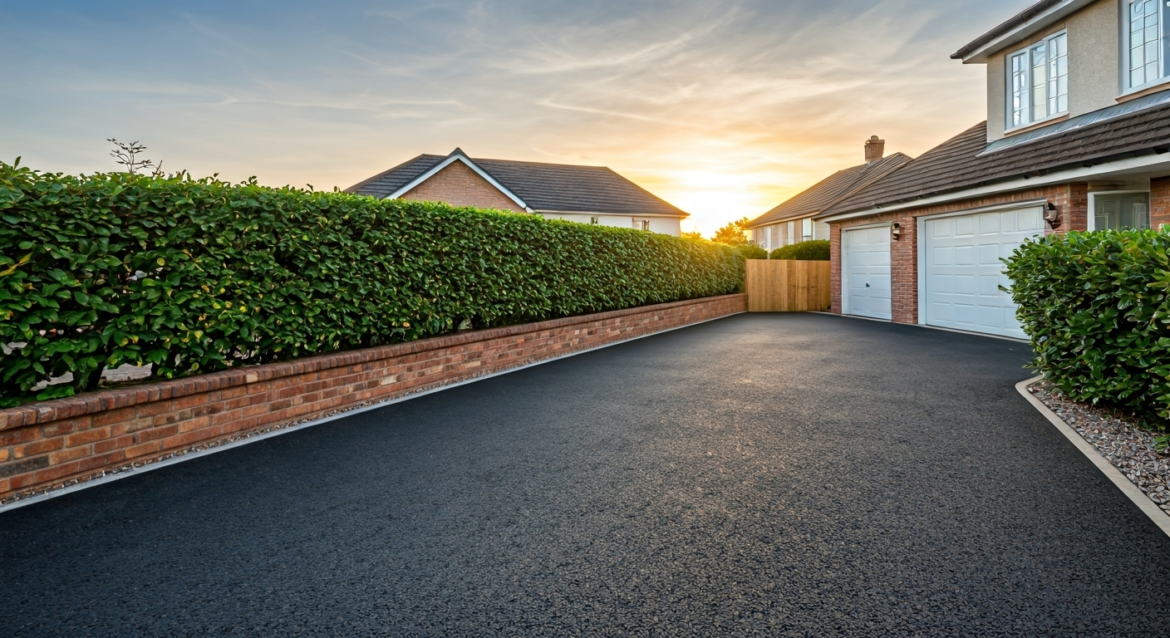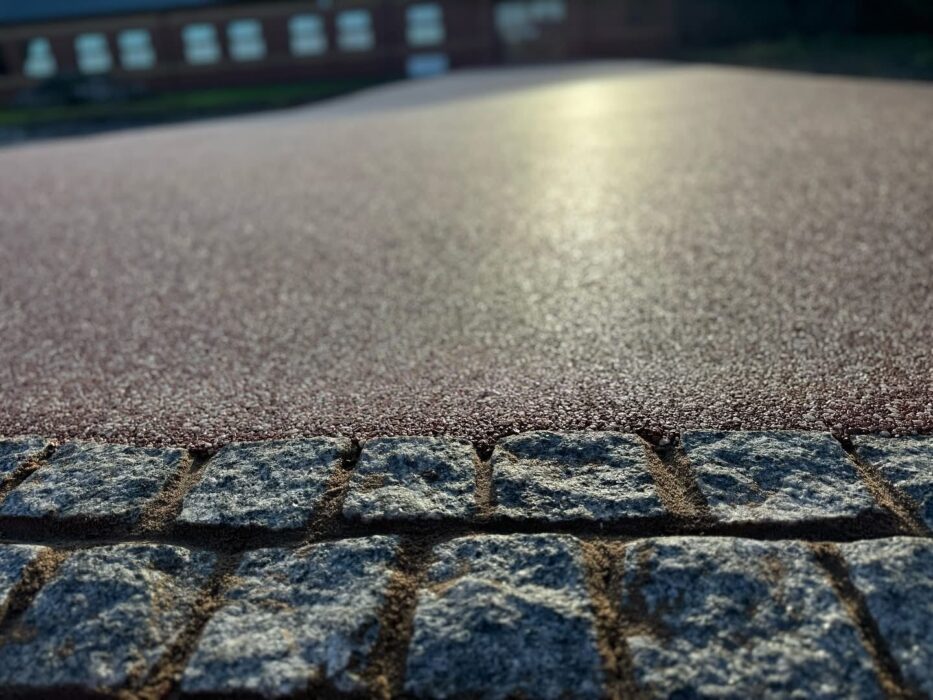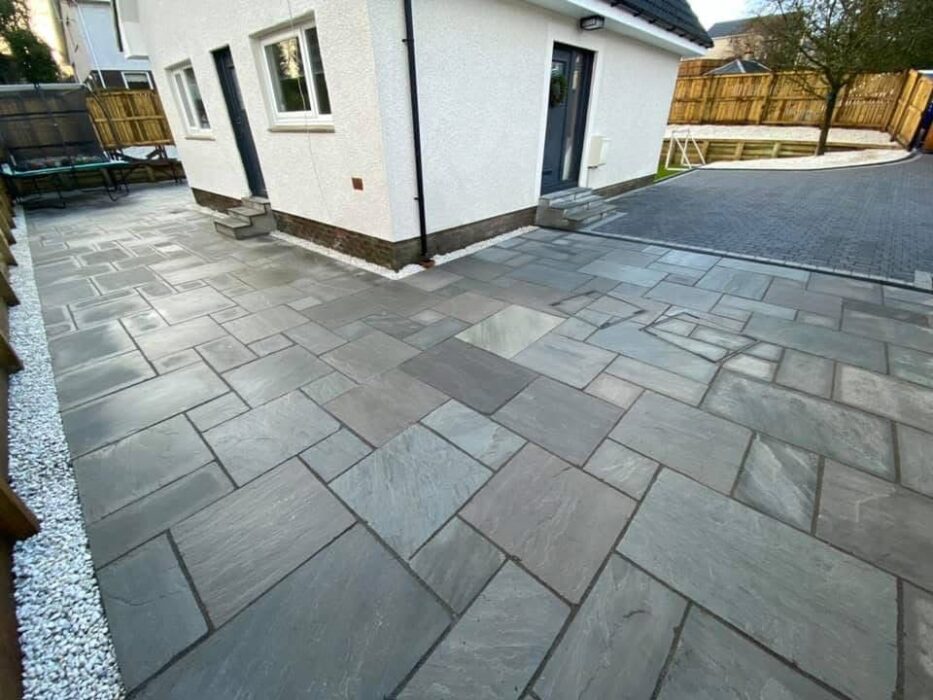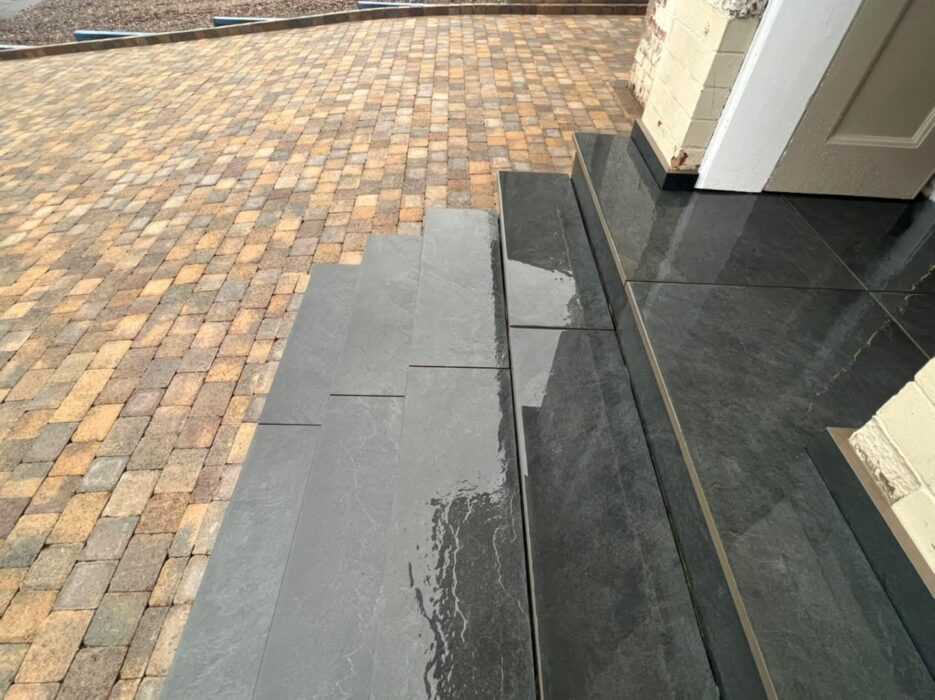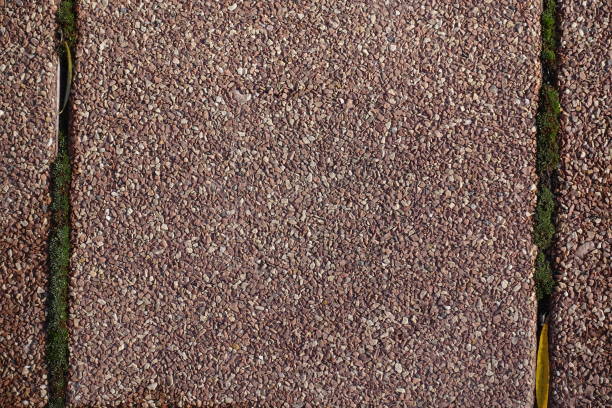Is a Resin Driveway Right for Heavy Vehicles?
When you’re pouring your heart into your dream home or lovingly upgrading the space you already cherish, the last thing you want is the gut-wrenching sight of cracks creeping across your driveway under the weight of your RV or truck. It’s not just about aesthetics—it’s about trust. Can resin driveways truly stand their ground when the heavyweights roll in?
The Strength Behind the Beauty
Resin driveways captivate homeowners with their clean, modern appearance and hassle-free upkeep. But if you own a camper, van, or commercial vehicle, visual appeal isn’t enough—you need resilience. Imagine sinking thousands into a flawless driveway, only to have it sag beneath your vehicle. Heartbreaking, isn’t it? This is why understanding the strength and structural requirements of resin systems is essential. Because in the end, it’s not just a driveway—it’s the foundation for peace of mind.
Understanding the Types: Resin-Bound vs. Resin-Bonded
Here’s where things get technical—but crucial. Resin-bound driveways involve mixing stones with resin before laying, creating a durable, smooth, and naturally draining surface. Resin-bonded versions, however, simply scatter stones onto a resin-covered base, offering a similar look but far less strength. If you regularly park anything heavier than a sedan, don’t gamble—resin-bound is the reliable route.
Can Resin Really Handle Heavy Loads?
Let’s be real. A well-installed resin-bound driveway can bear up to 7.5 tonnes. That’s plenty for small trucks, delivery vans, and RVs. But the secret isn’t just in the resin—it’s in what lies beneath. A strong, well-prepared sub-base of MOT Type 1 or reinforced concrete makes all the difference. Without it, even the best resin surface won’t last.
A Driveway That Delivers More Than Just Looks
Resin driveways aren’t just strong—they’re stunning.
Versatility with Style: Whether you love modern minimalism or rustic charm, resin’s color and finish options let it blend seamlessly into your vision.
Sustainable and Smart: It’s porous, meaning rainwater passes through naturally—goodbye puddles, hello eco-friendliness.
Easy to Maintain: No more relentless weeding or scrubbing. A gentle wash now and then is all it takes to keep it looking pristine.
The Weight Question: What’s the Real Limit?
Let’s break it down: most quality resin-bound driveways handle up to 7.5 tonnes. That’s no small feat—it covers most home and light commercial needs. But strength isn’t only about numbers. It’s about thoughtful installation. Get the foundation wrong, and you could face costly regrets.
How Resin Distributes the Load
Here’s the science: heavy vehicles exert pressure differently depending on tire size, load distribution, and how long they’re parked. Resin-bound systems excel at evenly spreading this pressure—especially when combined with a robust sub-base. Wide tires help too, minimizing pressure points that cause cracks.
Tested by Real Life, Not Just Theories
Resin isn’t unproven—it’s trusted in high-traffic spaces like hospitals, airports, and schools. These places demand durability, and resin delivers. When properly laid over a reinforced base, premium resin systems can handle more than most residential setups will ever demand.
Myth: Resin Is Not Fragile
Let’s crush the rumors. No, resin doesn’t crumble under heavy weight—at least not when installed by professionals. Those nightmare stories you’ve heard? They often come from poor installs or cheaper resin-bonded versions. When resin-bound systems fail, it’s usually due to shortcuts in groundwork, not the material itself. Done right, resin is strong, stable, and more than capable.
Caring for Resin Under Pressure
Good news: maintenance is light. Still, a little care goes a long way, especially with regular heavy use. Shift parking spots occasionally, don’t let oil or fuel pool on the surface, and give it a light pressure wash every few months. Got a crack? Patch it early—it’s easy and inexpensive.
What’s the Cost—And Is It Worth It?
Yes, resin costs more up front. But the long-term value? Incredible. With fewer repairs, higher curb appeal, and years of dependable performance, resin driveways often end up cheaper than concrete or asphalt when you consider the full picture. Think of it as paying once for peace of mind—rather than paying again and again for repairs.
What Experts Says
Civil engineers and seasoned installers agree: resin isn’t the weak link—installation is. With a properly prepared sub-base and precise laying, resin becomes a champion surface. Precision and preparation are everything.
Your Final Decision: Is a Resin Driveway Right for Heavy Vehicles?
Still undecided? Think beyond the surface. You want durability, elegance, sustainability, and simplicity—right? Resin gives you all that, and with the right installation, it’ll carry the weight of your lifestyle without breaking a sweat. Invest in quality materials, experienced professionals, and a solid base, and resin could be the last driveway you ever need.
FAQs
- Can a resin driveway support an RV or truck?
Yes, provided it’s a resin-bound system installed over a compacted, reinforced sub-base with the correct thickness. - Will parking a heavy vehicle void the warranty?
Not always. Many installers cover standard heavy vehicle use, but confirm this before signing anything. - How long does a resin driveway last under constant heavy traffic?
With proper care and maintenance, expect 15–25 years of dependable service. - Can resin driveways be repaired easily if damaged?
Absolutely. Small cracks or damage can be patched seamlessly—no full replacement needed. - Is planning permission required for a heavy-duty resin driveway?
Usually not, unless you’re altering drainage or installing over a large area. It’s best to check with local authorities to be safe.
Everything You Need to Know Before Installing a Resin Driveway
Thinking about installing a resin-bound driveway? You’re not alone. With sleek aesthetics and practical benefits, resin-bound driveways have skyrocketed in popularity. But before you dive in, there’s a lot you should know—costs, maintenance, installation, and whether it’s right for your home. Let’s break it all down.
What Is a Resin Driveway?
A resin bound driveway is a surfacing solution made by mixing natural aggregates (like gravel or crushed stone) with a clear resin that binds everything together to form a smooth, solid surface.
Types of Resin Used
There are two main types:
• UV-Stable Polyurethane Resin – Prevents yellowing and fading.
• Non-UV Resin – Cheaper but may discolor under sunlight.
Resin-Bound vs. Resin-Bonded
• Resin-Bound – Permeable, smooth finish, suitable for driveways.
• Resin-Bonded – Non-permeable, textured surface, best for non-vehicle areas.

Advantages of Resin Driveways
Aesthetic Appeal
One of the biggest selling points is how beautiful they look. You can choose from various colors, finishes, and textures to match your home.
Permeability and Drainage
A well-laid resin driveway allows water to drain through naturally, reducing puddles and the risk of flooding.
Low Maintenance
Say goodbye to constant weeding and pressure washing. Resin surfaces are resistant to weeds, and dirt is easy to wash away.
Eco-Friendliness
They’re made from natural aggregates and allow groundwater recharge, which helps maintain the ecosystem.
Disadvantages of Resin Driveways
Cost
Quality resin driveways don’t come cheap. Expect to pay more than traditional options like tarmac or gravel.
Surface Sensitivity
While durable, the surface can be damaged by heavy vehicles or sharp objects.
Installation Requirements
The surface must be prepared properly, and weather conditions must be dry for a successful installation.
How to Choose the Right Resin Material
UV-Stable vs. Non-UV Resin
Go for UV-stable resin if your driveway gets lots of sun. It resists fading and stays looking fresh for longer.
Aggregates and Finishes
Choose from quartz, marble, or granite in a range of colors and grain sizes to personalize your driveway.
The Installation Process Step-by-Step
Step 1: Ground Preparation
Remove the old surface and level the ground. Ensure there’s adequate drainage.
Step 2: Base Layer Installation
Lay down a solid base—typically tarmac or concrete—for structural integrity.
Step 3: Mixing Resin and Aggregates
Measure the resin and aggregate accurately and mix until fully coated.
Step 4: Laying the Resin
Spread and smooth the mixture using a trowel. Aim for an even, seamless layer.
Step 5: Curing Time
Let it set for a minimum of 4–6 hours, and avoid heavy use for 24–48 hours.
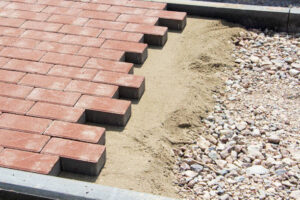
How to Maintain Your Resin Driveway
Regular Cleaning
Sweep leaves and wash the surface with mild detergent to avoid build-up.
Weed and Moss Control
Resin-bound driveways are resistant, but occasional weeding and moss treatment help keep things pristine.
Avoiding Heavy Impacts
Avoid parking heavy commercial vehicles or dragging sharp tools over the surface.
Common Mistakes to Avoid
• Skipping proper base preparation
• Choosing non-UV resin for sunny areas
• DIY installation without the right tools
• Not allowing proper curing time
Cost Breakdown and Budgeting
Material Costs
Expect to spend around £40–£70 per m² in the UK or $60–$100 per m² in the US.
Labor Charges
Professional installation usually adds another £30–£50 per m².
Hidden Expenses
Don’t forget costs like ground preparation, waste removal, and edging materials.
When Is the Best Time to Install?
The best time to install a resin driveway is during late spring through early autumn, ideally between April and October. This period offers the most favorable weather conditions—dry, mild, and consistent temperatures—which are essential for proper curing and bonding of the resin and aggregates. Resin materials are sensitive to moisture and extreme temperatures, so installing during wet or frosty weather can lead to poor adhesion and surface defects. Planning your installation during a stretch of dry days helps ensure a smooth finish and long-lasting durability. Avoid the rainy season or peak winter to prevent unnecessary complications or delays.
Alternatives to Resin Driveways
Tarmac
Tarmac is Cheaper and durable but lacks design flexibility.
Concrete
Strong and long-lasting, but can crack over time.
Block Paving
Block Paving driveway is Attractive and customizable, but higher maintenance than resin.
Final Verdict – Is It Worth It?
If you want a beautiful, durable, and low-maintenance driveway that enhances your curb appeal, a resin driveway is totally worth the investment—just make sure it’s done right.
Conclusion
A resin driveway can completely transform your property’s appearance while offering practical benefits like drainage and low maintenance. But it’s not a one-size-fits-all solution. Understanding the costs, requirements, and long-term commitment is key to making the right choice. Whether you go DIY or call in the pros, a little prep goes a long way. Now you’re equipped with everything you need to make a smart, stylish decision.
1. How long does a resin driveway last?
With proper maintenance, a resin driveway can last 15–20 years or more.
2. Can I install a resin driveway myself?
It’s best left to professionals. DIY installation may lead to uneven finishes and poor drainage.
3. Is a resin driveway slippery when wet?
Not if installed correctly with anti-slip aggregates. Resin bonded driveways offer more grip.
4. Can resin driveways crack?
If the base is unstable or poorly prepared, cracks can occur. A solid base prevents this.
5. How soon can I use my driveway after installation?
You can walk on it after 24 hours and drive on it after 48 hours, depending on weather.
Granite Driveways: Complete Guide for Long-Lasting Beauty
Thinking about upgrading your driveway? You’re looking for something stylish, extremely durable, and really low-maintenance? A granite driveway might be the best new friend you never realized you needed. Granite isn’t just a good-looking guy—it’s also one of the world’s hardest natural stones, so it can take everything from regular traffic to punishing weather without breaking a sweat.
Imagine coming home to a shiny, shiny finish that shouts class and lasts for generations. Sounded like something from a dream, didn’t it? In this Guide, we’re going to take you through everything you’ll want to know about granite driveways—what they are, why they’re worth the expense, how they’re put in, and what to anticipate along the way. Let’s get started and discover how granite can transform the exterior of your home from ordinary to awesome.
What is Granite?
Granite is amongst the toughest naturally occurring and most appealing stones utilized in building and landscaping designs today. Granite is made of quartz, feldspar, and mica. These minerals give a speckled appearance and vary in hues from greys, blacks, pinks, and whites. It is naturally glossy and coarse in texture, giving it a pleasing appearance as well as being non-slipping.
Why Choose a Granite Driveway?
Durability and Strength
Granite is among the hardest natural materials found. It doesn’t crack, warp, or erode easily, meaning your driveway will not suffer any such damage. It can endure years of car traffic with minimal to no wear that’s visible.
Low Maintenance Requirements
Granite does not require constant treatment and sealing like other surfaces. It requires occasional cleaning and resealing every few years, and that’s enough to maintain it looking as good as new.
Aesthetic Appeal and Curb Value
Few driveway materials add curb appeal like granite. Its sleek, natural finish can add an instant touch of elegance to any house—and perhaps even improve its value.
Weather and Wear Resistance
Rain, snow, or heat—granite takes it all in stride. Its surface doesn’t get too hot in the summer or too slippery in the winter, making it safe and reliable year-round.
Eco-Friendly Choice
Because granite is a natural material, it’s biodegradable and doesn’t leach harmful chemicals. Plus, it lasts longer, which means fewer replacements and less waste.
Are There Any Drawbacks?
As perfect as granite may seem, it’s important to consider a few potential downsides before installation.
Cost Factor
Granite driveways are not cheap. They cost more to install than asphalt or concrete. But repair and maintenance cost savings over the long term will usually pay for it.
Weight and Structural Requirements
Granite is heavy—really heavy. Your supporting driveways will have to be properly prepared to bear the weight, something that could bump installation costs up a little.
Color and Texture Differences
While many see this as a benefit, the natural variation in granite can be a downside if you’re looking for a completely uniform look. No two stones are exactly the same.
Installation Process
Installing a granite driveway is not your average weekend DIY project. It requires precision and the right tools—but the results are worth it.
Site Preparation
First, the area needs to be excavated and leveled. A strong sub-base—usually made of crushed stone—is laid to provide stability.
Laying the Base and Granite
Next, granite slabs or cobblestones are arranged in your desired pattern. Spacers and sand are often used to hold the stones in place and ensure even gaps.
Sealing and Finishing Touches
Once the stones are laid, the driveway is sealed to enhance color, prevent staining, and lock everything into place. Borders and edge finishes may also be added for a polished look.
Professional vs. DIY Installation
While experienced DIYers might tackle small granite paths, driveway installation is best left to professionals to ensure proper leveling, drainage, and durability.
Comparing Granite to Other Driveway Materials
Before settling on granite, it helps to understand how it stacks up against other popular driveway options.
Granite vs. Asphalt
Asphalt is more affordable to purchase and quicker to install, yet it does not look as good or last as long as granite. While asphalt may last 15–20 years if maintained, granite will have no problem lasting over 50. Granite is also oil-resistant more than asphalt.
Granite vs. Concrete
Concrete is cleaner and smoother to the eye but cracks and stains. Granite looks more natural and textured but has much greater durability and weathering wear and tear durability.
Granite vs. Gravel
Gravel driveways is budget-friendly and easy to install, but it requires regular raking, refilling, and weed control. Granite provides a finished, permanent look that remains where it is placed with little maintenance.
How to Maintain a Granite Driveway
One of the biggest perks of granite? It’s almost maintenance-free—but a little care goes a long way.
Routine Cleaning Tips
Sweep regularly to remove debris. A soap-and-hose treatment is usually sufficient for a good deep clean. Never use harsh chemicals that can damage the sealant.
Dealing with Stains and Spills
Granite’s non-porous surface is pretty stain-resistant. For oil or grease spots, apply a mild degreaser and soft-bristled brush. Clean up spills at once to avoid penetration.
Resealing for Longevity
Sealing helps protect granite from moisture and staining. Renew a new coat 3–5 years depending on use and exposure.
Granite for Residential vs. Commercial Properties
Enhancing Residential Curb Appeal
Granite makes a bold statement for homes, blending elegance with practicality. It boosts resale value and leaves a lasting impression on guests or potential buyers.
Heavy-Use Driveways for Businesses
For commercial properties like offices, hotels, or showrooms, granite withstands constant traffic while maintaining a refined, professional appearance.
Common Myths About Granite Driveways
Let’s clear up some common misunderstandings about granite driveways.
“Granite is Too Expensive”
Yes, granite costs more upfront—but it lasts decades longer and requires less maintenance than asphalt or concrete.
“Granite is Slippery When Wet”
In fact, granite’s textured surface offers better grip than many other materials, especially when installed correctly.
“Granite is Hard to Maintain”
Quite the opposite. Granite is low-maintenance—just keep it clean and reseal occasionally.
Future Trends in Granite Driveway Design
- Mixed-material driveways (granite and turf or concrete) are on the rise.
- LED lighting integration into stone edges for a modern touch.
- Custom-cut granite slabs for geometric or minimalist designs.
Tarmac Driveways: A Complete Guide for Homeowners
A well-built driveway enhances the appearance of your home, increases functionality, adds value, and provides long-term convenience. Tarmac driveways remain one of the most popular choices in the UK.
Whether you’re looking to replace an existing driveway or start from scratch, this comprehensive guide will cover everything you need to know about tarmac, from its benefits and installation method to cost breakdowns and long-term upkeep.
What is Tarmac?
Tarmac, or tarmacadam, is a type of road covering material made of crushed stone combined with tar. Today, the tar is frequently replaced by bitumen, a byproduct of petroleum processing that gives tarmac its signature black colour and durability.
Tarmac is frequently used in road construction, parking lots, and residential driveways due to its strength, smooth surface, and ease of application – all at a moderate cost.
Why Choose a Tarmac Driveway?
Tarmac is popular not only because it’s inexpensive but also because it works well under duress (literally). Here are the key reasons why homeowners select tarmac.
1. Durability.
Tarmac driveways Keston are built to withstand enormous loads and are frequently used. They are highly resistant to wear and tear, making them suitable for homes with numerous vehicles or larger cars. When compacted, tarmac provides a durable surface that can withstand harsh weather and frequent pressure.
2. Cost-effective Installation
Tarmac is one of the most cost-effective solutions for driveways compared to block paving, gravel, or resin-bound. The materials are inexpensive, and the installation method is rapid and straightforward, resulting in lower labour expenses and faster project completion.
3. Quick and Easy Lay
Tarmac can be laid and set in a few days, depending on the size of the region. Unlike some other materials, tarmac takes only a short time to cure or settle. This is especially useful if you wish to minimise disruption in your home life.
4. Low maintenance.
Tarmac is much less likely to support weed growth than block paving or gravel. Furthermore, it does not shift or loosen with time, eliminating the need to reset blocks or add additional gravel. Occasional cleaning and applying a sealer every few years are usually sufficient.
5. Smooth, professional appearance.
Tarmac creates a tidy, uniform appearance that complements old and modern homes. To add contrast and flair, it can be edged with bricks, kerbstones, or ornate borders.
Are There Any Drawbacks?
While tarmac has numerous benefits, it is critical to understand its limitations before selecting it for your property.
– Prone to cracking
Tarmac can break over time if the base is not prepared correctly or if the material is applied too thinly. If left untreated, these cracks can lead to potholes, so contact an experienced contractor and keep the surface in good condition.
– Fading Over Time.
Tarmac’s deep black hue can fade to grey after several years of UV exposure. This is primarily decorative and has little effect on the driveway’s performance. Still, if beauty is essential, you may apply a UV-resistant sealant regularly.
– Heat sensitivity.
Tarmac may soften significantly in exceptionally hot weather (particularly typical in southern locations or during heatwaves). This is unlikely to cause long-term damage; however, parking big cars in one location for an extended period may result in indentations.
– Drainage and planning requirements.
Tarmac is a non-permeable substance that may contribute to surface water runoff. In regions where this is a problem, you may be obliged to construct suitable drainage or even seek planning approval if you cover a significant area.
Installation Process
An asphalt driveway’s lifetime and attractiveness depend heavily on proper installation. Here’s how it is usually done:
1. Ground Preparation.
The first stage is to excavate the area to the desired depth (typically between 250 and 300mm), removing any existing materials and debris. The land is then levelled and compacted to guarantee a solid foundation.
2. Subbase Installation
A sturdy sub-base is constructed with crushed stone or MOT Type 1 material. This is compacted extensively to give a solid foundation for the top layers.
3. Edging (Optional but recommended)
Brick or stone edging can be placed at this point. It enhances the aesthetic attractiveness while also containing the tarmac.
4. Base and Surface Layers.
A foundation layer of tarmac is applied, followed by a top coat (wear course). Each layer is crushed using a roller to provide a smooth, level surface. To guarantee adequate bonding, work the hot tarmac fast before it cools.
5. Finishing and Curing.
Once it has been laid and compacted, the tarmac needs time to cool and set, which normally takes 24 to 48 hours. After that, the driveway is ready to use.
Maintenance Tips for Long-Lasting Driveways
- To maintain your asphalt driveway looking and performing well, follow these basic maintenance steps:
- Clean regularly by sweeping away leaves and debris. To eliminate dirt accumulation, use a hose or a pressure washer.
- Seal every 3-5 years: A protective sealer helps to prevent fading, cracking, and water damage.
- Avoid heavy things in hot weather since prolonged pressure at high temperatures might deform the surface.
- Cracks should be repaired as soon as possible: Filling tiny cracks early prevents them from growing into larger problems.
- Keep an eye out for oil or gasoline spills: Petroleum products can break down the binder on the tarmac, so clear up any spills soon.
Is a Tarmac Driveway Suitable for You?
Tarmac is an excellent choice for an inexpensive, dependable, quick-to-install surface that looks fantastic and performs well over time. While it does not offer the creative design options of block paving or resin, its convenience and low cost make it a popular choice among UK households.
Before you begin, hire a qualified contractor with a proven track record. A well-prepared subbase and high-quality materials are essential for a tarmac driveway that will last 15 to 20 years, if not longer.
Tarmac vs Asphalt: What’s the Difference
If you want to pave roads, driveways, or parking spots, you can choose between tarmac and asphalt. You may have heard both terms, but do you know the difference? In this guide, we’ll break it down in simple and easy-to-understand guide to help you choose the best material for your concrete job.
What Are Tarmac and Asphalt?
People often use the words “tarmac” and “asphalt” to mean the same thing, but they are different. The main difference is what they are made of and how they are put together.
Tarmac: It is made by mixing tar with crushed stones or other materials to create a smooth surface. It’s usually made of a rougher material with a smooth finish that makes it easier to grip, especially when cold or wet outside.

Asphalt: This is a similar material, but instead of tar, it uses bitumen, a sticky substance made from oil, as its glue. Bitumen is known for being flexible, which makes asphalt last longer in places where the weather changes often.
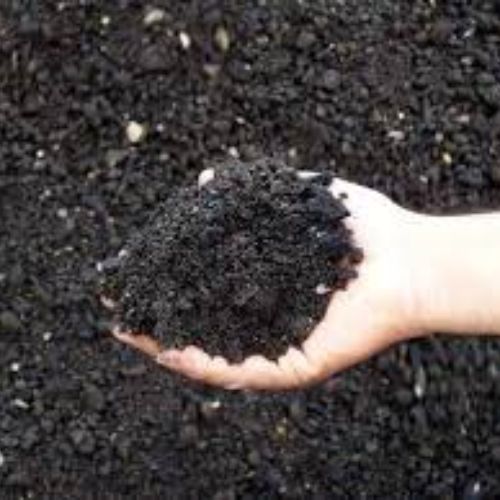
Key Differences Between Tarmac vs Asphalt
To help you understand the differences better, let’s take a look at the key features of each material:
| Feature | Tarmac | Asphalt |
| Binder Used | Tar | Bitumen (from petroleum) |
| Texture | Rougher, provides more grip | Smoother, less textured |
| Durability | High durability, but can become brittle over time | Very durable, resists cracking and wear |
| Weather Resistance | Performs well in cold and icy conditions | Performs well in extreme weather, more flexible |
| Maintenance | Easy to patch minor damage, but can crack over time | Easier to repair, cracks less over time |
Advantages of Tarmac
- Cost-effective: Tarmac Driveway is often less expensive to install than asphalt, making it a popular choice for jobs that need to stay within a budget.
- Weather-Resistant: Tarmac’s rough surface makes it great for roads, walkways, and other places that get slippery when it snows or ices. It’s conducive in the winter because it makes the ground safer.
- Low Maintenance: Tarmac doesn’t need much maintance. Sometimes, cracks or damage can be fixed without resurfacing the whole thing.
- Quick Installation: Tarmac sets quickly, which makes installation go quickly. This is great for people who want to keep work as quiet as possible.
- Sustainable: It can be recycled, making it a good choice for earth-friendly paving.
Advantages of Asphalt:
- Smooth and Quiet: Compared to cement, asphalt has a much smoother surface. This makes it perfect for roads with a lot of traffic and business places. It also reduces road noise, making the area quieter.
- Crack Resistance: Asphalt is more flexible than gravel, itching and shrinking more efficiently when the temperature changes. This helps prevent it from appearing, especially when temperatures change significantly.
- Very Durable: Asphalt is very durable and can withstand heavy traffic and bad weather. Because of this, it’s great for major roads, highways, and business properties.
- Repairs Are Easy: Asphalt is easy to fix or resurface, which makes the ground last longer. If you find cracks or holes, you can fix them without doing a whole new job.
Asphalt is 100% recyclable, just like roads. Old asphalt can be used in new projects, which is better for the environment overall.
Tarmac vs Asphalt: Which One Should You Choose?
Which one you choose (tarmac or asphalt) relies on your needs and the type of surface you want to put down. Here are some things to think about:
For Driveways: Tarmac could be a good choice for paving a private driveway. It’s cheap, works well in cold weather, and doesn’t need much upkeep. It’s also easier to set up.
For Roads and Areas with Lots of Foot Traffic: Asphalt is probably the better choice if you cover a road, parking lot, or area with a lot of foot traffic. It’s smoother, lasts longer, and doesn’t crack as quickly, so it’s excellent for big loads and constant use.
For Cold Climates: Because tarmac is rough, it works well in colder places where it often freezes over. It’s easier to walk on than concrete, which can get slippery when chilly outside.
Tarmac vs. Asphalt Costs: A Comparison
When it comes to up-front costs, tarmac is usually the better choice, especially for smaller jobs like drives or private roads. But even though tarmac might be cheaper at first, it might need more fixes and upkeep over time, which could raise the total cost.
Another option is asphalt, which costs more but lasts longer and needs less upkeep. In the long run, asphalt might be a better choice for places with heavy foot traffic or bad weather.
Conclusion: Which is Better for Your Project?
Ultimately, the choice between tarmac and asphalt relies on the needs of your project, your budget, and how much traffic you expect. Just a quick review:
- Asphalt is best for small home areas, driveways, and places that need weather resistance but don’t want to spend a lot of money.
- Asphalt is excellent for significant roads, parking lots, and business properties with much foot traffic. It’s also very durable and doesn’t need much upkeep.
Both cement and asphalt are good choices, so it doesn’t matter which one you pick. If you know the pros and cons of each, you can make an intelligent choice to ensure your paved surface lasts for many years.
Indian Stone Driveways: A Strong, Stylish, and Long-Lasting Choice
Apart from serving as a parking area, your driveway is an essential aspect of the property’s general look, worth, and use. Selecting the right material for the driveway is critical as it affects durability, aesthetics, and maintenance ease. Of the many options available, Indian stone driveways are favored for their natural elegance, endurance, and cost-effectiveness over time.
At NB Resin Driveways, we focus on mounting driveways that enhance the looks and functionality of your property. This guide analyzes the advantages of Indian Stone driveways and their comparison to other materials and maintenance techniques while providing answers to common queries.
What is Indian Stone, and Why is it Popular?
Indian Stone, also known as Indian Sandstone, is a paving stone quarried in India. It is popularly used for making patios, pathways, and driveways because of its outstanding reliability, natural textures, and various colors.
Key Features of Indian Stone Driveways
- Wide color range: Stones are offered in warm grey, earthy tones, and multi-colored blends that fulfill various architectural designs.
- Strength: Able to bear heavy-duty use, suitable for home and business premises.
- Unique Natural Appearance: Since Indian stone is a natural material, no two stones are identical, giving them a distinguishing factor.
- Slip-Resistant Surface: The texture provides an excellent grip even in wet conditions.
- Eco-Friendly Choice: As a natural material, it is a sustainable substitute for artificial driveway options.
- Durability and Strength: One of the most significant characteristics of Indian stone is that it is not prone to cracking or fading due to daily use. Indian stone is not only stable in all conditions, but unlike concrete, which fractures easily, and tarmac, which softens with heat, Indian stone is dependable for all weather conditions.
Essential Factors That Increase Its Durability
It withstands heavy loads and is ideal for not only family cars but also commercial vehicles.
- Weather-Resistant: It is damage-free in extreme heat, freezing temperatures, and heavy downpours.
- Long Lifespan: If cared for and installed correctly, an Indian stone driveway can easily last several decades.
- Low Maintenance: In comparison to tarmac or concrete driveways, Indian stone is relatively low maintenance.
Maintenance Tips for Indian Stone Driveway
Although Indian stone is easy to care for, periodic care can help it look brand new for many years.
1. Sealing the Surface
A suitable sealant will guard against stains, moisture, and normal wear and tear and reduce the growth of moss and algae.
2. Preventing Weed Growth
Although Indian stone is weed-resistant, small gaps between the rocks can facilitate growth. To mitigate this, place a weed-resistant membrane beneath the stones during installation.
3. Regular Cleaning
To keep the natural finish, Wash the driveway once every two to three months with low detergent and water solution. Use a soft-bristled brush to clean dirt and stains. Soak the stone under a low-pressure washer as it will not damage the stone.
4. Joint Resanding
The sand used for jointing between stones might wash away with time. Regularly replenishing the sand helps restrict movement and prevent weed growth.
5. Fixing Minimal Damage
In case of chipping or staining on a stone: Use a cleaner designed for stone stains instead of cheap polish for an unobtrusive patch. Replace the chip stone instead of cover patching.
Benefits and Disadvantages of an Indian Stone Driveway
Benefits
- Resistant to damage and highly durable
- Distinct and unsynthesized looks add charm and value to the property
- Much easier to maintain when compared to tarmac
- Can survive freezing weather
- Creates no pollution
Disadvantages
- It is more expensive at the beginning compared to concrete or tarmac.
- It must be installed by a professional
- Installation is more time-consuming than some other options.
Commonly Asked Questions (CAQ)
1. How long does an Indian stone driveway last?
If installed and maintained correctly, a driveway made of Indian stone can last over 30 years, which is an excellent return on investment.
2. Is an Indian stone driveway slippery when wet?
Indian stone is not slippery when wet because its naturally textured surface provides a lot of grip during wet, icy, or snowy conditions.
3. At what intervals should I apply a sealant to my driveway?
Applying a sealant every 3 to 5 years is advisable to protect against stains and enhance durability.
4. Can Indian Stone withstand the weight of heavy vehicles?
It can bear the weight of light commercial vehicles like cars and vans when mounted on a firm sub-base.
5. Does Indian Stone require regular maintenance?
No, it requires occasional resealing of joints and frequent cleaning to maintain good looks.
6. Is it possible for Indian Stone to lose color over time?
Unlike most materials, Indian stone is highly resistant to UV light and does not fade quickly. However, it is advisable to seal it to retain its color for longer periods.
7. Is Block paving cheaper than Indian Stone?
Unlike block paving, Indian Stone is relatively costly, but in the long run, it is more durable, has a lower maintenance cost, and gives a more natural appeal.
8. Can Indian Stone driveways be fitted without the assistance of professionals?
You may choose to do the installation yourself, but it would be wise to employ the services of driveway fitters such as NB Resin Driveways, who will ensure the base is correctly set.
Are Indian Stone Driveways For You?
If you are looking for a durable and beautiful driveway, then Indian stone is the solution for you. This natural material adds charm and sophistication to any style, modern or traditional while providing excellent durability. Also, it is easy to maintain.
Perfect for:
- Homeowners wanting a unique and premium look
- Buildings with high pedestrian and vehicle traffic volume
- People looking for hassle-free driveways
- Environment-friendly individuals
Here at NB Resin Driveways, we focus on providing unmatched Indian stone driveway quality.
A Complete Guide to Resin Bound & Bonded Gravel Solutions
A resin driveway provides the perfect upgrade solution, offering a sleek, low-maintenance, modern finish. Driveways made of resin are durable, lon, sting, and ae and are land pleasing. The greatest thing about it is that you can do it yourself! This guide covers all the basics for DIY resin driveways, from types of driveways to a detailed installation process.
What is a Resin Driveway?
A resin driveway is a form of surfacing in which gravel is encapsulated with a special resin. This forms a very hard, smooth, and porous finish. All these features contribute to this choice is highly favored, as it requires relatively little maintenance, is weed-resistant, and allows rainwater to infiltrate the surface, thereby preventing puddles and drainage problems.
Types of resin driveways:
Resin Bound Gravel
- Gravel is mixed with resin before being laid
- Creates a smooth, even surface
- Fully permeable (water drains through quickly)
- Ideal for driveways, paths, and patios
Resin Bonded Gravel
- Resin is spread onto the surface first, and then gravel is sprinkled on top
- Rougher, more textured finish
- Less permeable than resin-bound driveways
- Suitable for areas where extra grip is needed
Benefits of a Resin Driveway
Here we write Benefits of a Resin Driveway
- Long-lasting: Can last over 15 years with proper care
- Low Maintenance: No weeds or loose stones
- Weather Resistant: Handles rain, snow, and extreme temperatures well
- Visually Appealing: Comes in a variety of colors and finishes
- Eco-friendly: Permeable surface reduces water pooling and runoff issues
What You Need for a DIY Resin Driveway?
Before you start, make sure you have the right materials and tools:
Materials:
- Resin driveway kits (includes resin and gravel mix)
- Gravel resin binder
- Primer (if needed)
- Anti-slip additives (optional but recommended)
Tools:
- Trowel or screed for leveling
- Mixing drill and paddle
- Gloves and safety goggles
- Wheelbarrow for mixing
- Pressure washer (for surface preparation)
Step-by-Step DIY Installation Guide
Step 1: Prepare the Surface
- Clear any debris, weeds, or dirt from your existing driveway
- Use a pressure washer to clean the surface thoroughly
- If applying on concrete or tarmac, apply a primer for better adhesion
Step 2: Mix the Resin and Gravel
- Pour the resin into a large mixing bucket
- Gradually add the gravel while mixing to ensure even coating
- Follow the instructions on your resin kit for the correct ratio
Step 3: Lay the Resin Mix
- Pour the mixed resin and gravel onto the driveway
- Spread evenly using a trowel or screed
- Work quickly, as resin begins to set within 30-40 minutes
Step 4: Smooth and Level
- Use a trowel to level the surface and ensure even thickness
- If using resin-bonded gravel, sprinkle additional gravel on top before the resin sets
Step 5: Allow to Cure
- Leave the driveway to set for at least 24 hours
- Avoid walking or driving on it during this time
Extending Resin Use to Paths & Walkways
Did you know resin isn’t just for driveways? You can also use resin path kits to create smooth, attractive walkways in your garden. The process is similar but on a smaller scale. A resin path is a great way to connect different areas of your yard with a stylish, non-slip surface.
Cost & Budget Considerations
- DIY vs. Professional Installation: Doing it yourself can save money compared to hiring a contractor.
- Resin Driveway Kits: Prices vary, but expect to spend around $40–$80 per square meter.
- Long-term Savings: Resin driveways require minimal maintenance, reducing repair costs over time.
Common Mistakes & Troubleshooting
- Uneven Surface? Ensure you spread the mixture evenly and don’t let it pile up.
- Cracking or Loose Stones? Check that you’ve used the correct resin-to-gravel ratio.
- Poor Drainage? Ensure the base is prepared correctly and the driveway is fully permeable.
Conclusion
A resin-bound driveway is a great option that transforms your house’s appearance but offers durable and low-maintenance solutions. Provided that you have the right materials, tools, and instructions. Are you thinking of a DIY resin driveway project? Look at the NB Resin driveway and gravel resin contractor available to start your project today.
Benefits of Resin Bound Driveways: A Durable and Stylish Choice
A resin bound driveway is an option for upgrading your property’s exterior that combines everything perfect: durability, attractiveness, and practicality. NBResin Driveways transforms ordinary driveways into stunning entrances that considerably boost the curb appeal and value of the property. Dive into the benefits of choosing a resin-bound driveway for your home.
What is a Resin-Bound Driveway?
A resin bound driveway combines high-quality resin and aggregates, including gravel, crushed stone, or marble. It is laid on a prepared base for a smooth, permeable, and rigid finish. Compared to concrete driveways, resin-bound driveways have several unique aesthetic and functionality advantages.
Key Benefits of Resin-Bound Driveways
1. Durability and Longevity
Durable resin-bound driveways can withstand heavy traffic and harsh weather conditions and do not wear out quickly. The resin then acts as a binder that bonds the aggregates firmly and does not let them break away, chip, or displace. A resin-bound driveway can last over 20 years when installed properly and maintained.
2. Stylish and Customizable
One of the most unique features of resin-bound driveways is the versatility in aesthetics. A selection of colours, textures, and finishes allows for such a diverse range that it is possible to achieve a driveway that is very much in keeping with the style of the architecture and landscaping around the house. Whether a preference for a natural look with earthy tones or an immaculate modern design, there are endless possibilities.
3. Permeability
Contrary to non-porous materials, the resin-bound driveways do not prevent water from seeping since they are entirely permeable. This will help lower the risks of standing water, flooding and moisture problems, which makes it an eco-friendly alternative. It is also SuDS compliant, which is excellent because we need to follow the rules in urban areas toto prevent water runoff systems.
4. Low Maintenance
A resin-bound driveway is easy to maintain. Due to its smooth surface, no weeds can sprout, and all dirt or debris can be washed away with a hose or pressure washer. Occasionally, sweeping will suffice to keep the driveway clean.
5. UV Stability
Resin-bound driveways are UV stable and won’t fade or disintegrate over time. Therefore, even in sunny climates, your driveway will retain its lively look for quite some time.
6. Slip-Resistant Surface
Safety is another significant advantage of resin-bound driveways and surfacings on their textured finish. The surface offers excellent grip and is slip-resistant even when wet or icy. It makes a practical option for those who live with children, elderly relatives, or frequent visitors to the house.
7. Quick Installation
Resin-bound driveways are much quicker to install than conventional driveway options, so there is minimal disruption to your daily life. Once laid, the surface is good to go within 24-48 hours, depending on the cure time.
Why Choose NBResin Driveways?
NB Resin Driveways provide high quality driveways and excellent craftsmanship. A team of skilled professionals uses only the best materials and advanced methods to ensure that your driveway is not just up to standard but surpasses expectations. We must work alongside you from the consultation phase through installation to realize what you have envisioned for yourself.
Conclusion
A resin-bound driveway is a significant investment, as it increases any property’s functionality and visual aspect. This material’s durability, minimal maintenance, and adaptable design make it a preferred option for homeowners who wish to add value and a touch of elegance to their houses.

